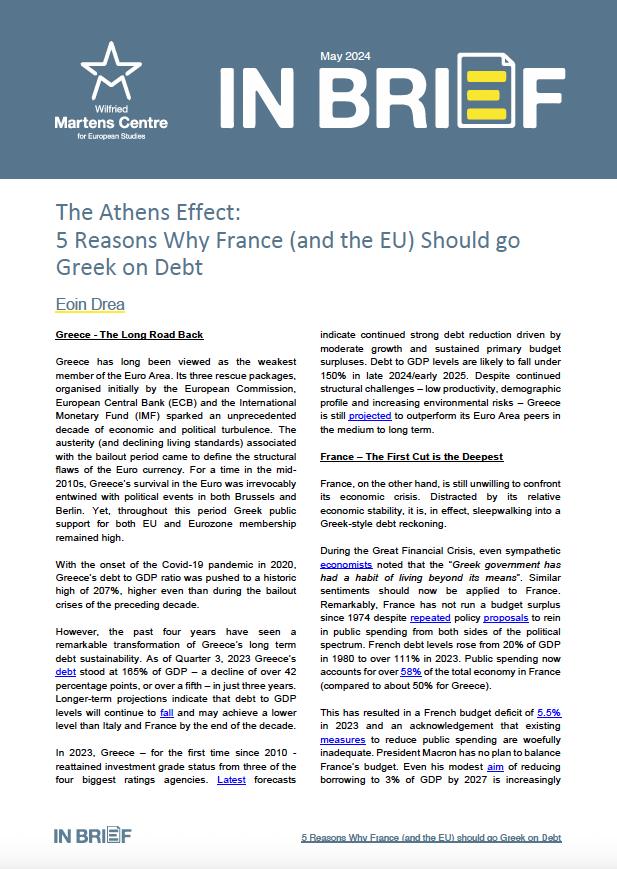The Athens Effect: 5 Reasons Why France (and the EU) Should go Greek on Debt
13 May 2024
Greece has long been viewed as the weakest member of the Euro Area. Its three rescue packages, organised initially by the European Commission, European Central Bank (ECB) and the International Monetary Fund (IMF) sparked an unprecedented decade of economic and political turbulence. The austerity (and declining living standards) associated with the bailout period came to define the structural flaws of the Euro currency. For a time in the mid-2010s, Greece’s survival in the Euro was irrevocably entwined with political events in both Brussels and Berlin. Yet, throughout this period Greek public support for both EU and Eurozone membership remained high.
With the onset of the Covid-19 pandemic in 2020, Greece’s debt to GDP ratio was pushed to a historic high of 207%, higher even than during the bailout crises of the preceding decade.
However, the past four years have seen a remarkable transformation of Greece’s long term debt sustainability. As of Quarter 3, 2023 Greece’s debt stood at 165% of GDP – a decline of over 42 percentage points, or over a fifth – in just three years. Longer-term projections indicate that debt to GDP levels will continue to fall and may achieve a lower level than Italy and France by the end of the decade.
In 2023, Greece – for the first time since 2010 – reattained investment grade status from three of the four biggest ratings agencies. Latest forecasts indicate continued strong debt reduction driven by moderate growth and sustained primary budget surpluses. Debt to GDP levels are likely to fall under 150% in late 2024/early 2025. Despite continued structural challenges – low productivity, demographic profile and increasing environmental risks – Greece is still projected to outperform its Euro Area peers in the medium to long term.
ENJOYING THIS CONTENT
